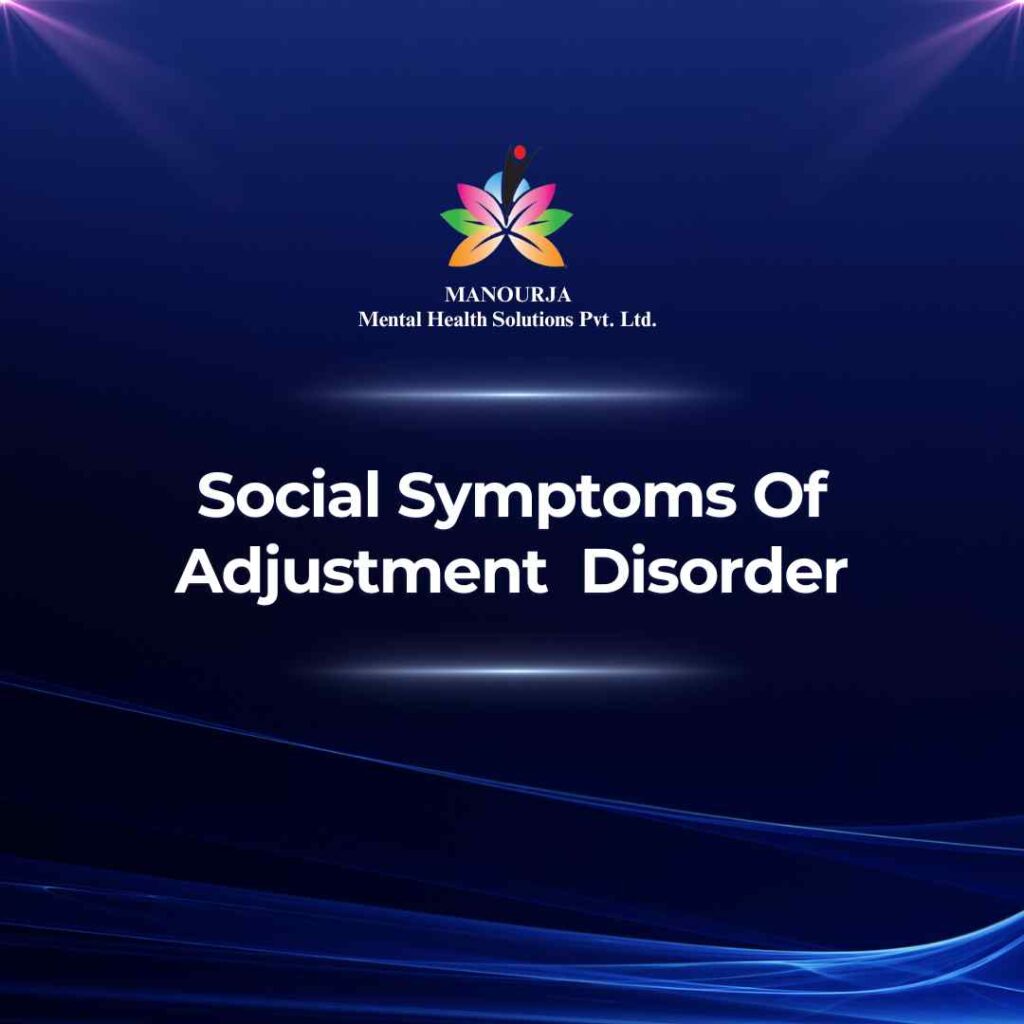Social Symptoms of Adjustment Disorder

Adjustment disorder not only affects an individual’s emotional and psychological well-being but also impacts their social interactions and behavior.
Here are some of the key social symptoms commonly associated with adjustment disorder:
- Social Withdrawal: One of the most noticeable social symptoms is a tendency to pull away from friends, family, and social activities. Individuals may feel overwhelmed by social interactions or believe they cannot handle being around others, leading to isolation.
- Conflict in Relationships: Due to heightened irritability and mood swings associated with adjustment disorder, conflicts can become more frequent with loved ones, friends, and coworkers. These conflicts can stem from misunderstandings, oversensitivity, or impatience, all of which are common in people dealing with significant stress.
- Decreased Performance at Work or School: Social functioning in professional or educational settings can deteriorate, often due to difficulties in concentrating, decreased motivation, or withdrawal. This might manifest as decreased productivity, errors, absenteeism, or conflicts with colleagues and supervisors.
- Difficulty Adapting to Social Roles: Individuals may struggle with their roles within the family, workplace, or other social groups. For example, a parent might feel incapable of providing emotional support to their children, or a team member may feel unable to contribute effectively at work.
- Avoidance of New Social Situations: Fear of stress or failure might cause someone with adjustment disorder to avoid new social situations. This avoidance can hinder personal growth and limit opportunities for improvement or enjoyment.
- Changes in Social Behavior: You might notice changes in how a person interacts. They could appear unusually quiet, disengaged, or conversely, might act out in an uncharacteristically aggressive or outspoken manner.
- Dependency or Overreliance on Others: Some individuals may become overly dependent on someone they perceive as a caretaker or protector, excessively seeking reassurance or guidance for everyday decisions, reflecting their insecurity and uncertainty in handling life’s challenges on their own.
These social symptoms of adjustment disorder can create a significant disruption in an individual’s life, affecting relationships, job stability, and overall social integration. Effective treatment typically involves psychotherapy aimed at helping individuals develop coping strategies and improve their social skills, sometimes combined with family or couples therapy to address relationship dynamics.
At MANOURJA, we believe in the transformative power of counseling. Our experienced therapists offer a safe and supportive space where you can explore your thoughts, emotions, and challenges. Through personalized counselling sessions, we’ll work together to develop coping strategies, build resilience, and achieve lasting positive change. Discover the path to a healthier, happier you with MANOURJA counselling services.
MANOURJA Rehabilitation Services
At MANOURJA, we’re dedicated to helping you in rebuild your life, after difficult times. Our rehabilitation services focus on understanding what you need to move forward, whether you’re recovering from addiction, trauma, or any psychological – social challenges. We create personalized plans, that are all about helping you, regain your strength and find hope again. With a caring team by your side, you’ll have the support to make real progress and take steps toward a brighter, healthier future.
